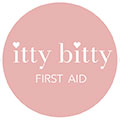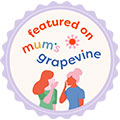8 Tips For Safely Exploring the Big, Wide World | Snotty Noses
Posted by Laura Klein on 3rd Sep 2018
The modern world can feel like a scary place. News, social media and parenting forums can leave us feeling paranoid that something terrible is going to happen to our little one.
However, statistics show that there is no more chance of being hurt or kidnapped now than they was 30 years ago. In fact, technology is helping parents to allow age appropriate independence, while keeping peace of mind.

Concerns about safety means many parents are increasingly keeping their children inside. Researchers from the Daniel Morcombe Foundation have found that Australian kids in overly safety-conscious homes spend 3 hours less outdoors each week than other children. And experts say this isn't doing anyone any favours.
Children of all ages need to be outdoors for a good part of everyday, with the right mix of age appropriate supervision and independence. The world is an interesting place and curiosity and engagement is the way children learn best. If there's something more interesting over there - like a dog or bird or a natural water source - that's where they want to be.
Toddlers and children don't have the cognitive ability to measure distance or understand risk, like adults can. They are also very trusting and have difficulty understanding stranger danger.
Rather than scaring kids senseless and stressing yourself into paranoia, there are way to enjoy the world whilst staying safe.
1. Opportunity: playing in nature provides age-appropriate risks that children can't get indoors. Councils around Australia have invested millions of dollars into playgrounds and outdoor spaces, where children can play independently yet still be supervised.
The favourite Aussie pastime of a day at the beach, is the classic, old-school, outdoor fun. And it provides ample opportunity for exploration, creativity and choice. Just remember the hat, sunscreen and sun safe swimwear!
Parents can help kids learn to assess risk rather than discourage taking risks. For example, when climbing a high tree - ask which branch will help you get your balance best? How are you going to position your hands and feet so you don't slip?
At the beach, begin in the shallows with your toddler, holding their hand. Then gradually allow them to find their own balance in the small waves. Before you know it, they will be tackling the bigger waves on their boogie board independently. It's all about gradual progression.
2. It's a Numbers Game: as children enter the kindy and primary school years, they are ready for more age-appropriate independence. Having opportunities to play unsupervised in a safe place will be easier if there is a group. The old saying, "there's safety in numbers" is true, and kids learn to watch out for their mates and stay together - a crucial skill they will need in their teenage years too.
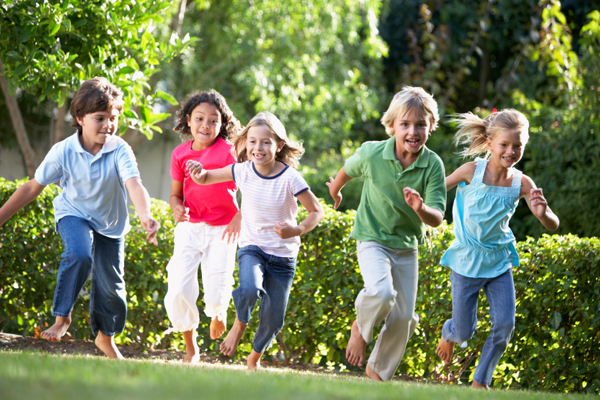
3. Words of Encouragement: from an early age, start talking to children about having a go. Say "You look a bit worried about that" or "Do you feel like you can do that?" If they feel unsure, guide them and give them a lesser task until they feel more confident, like using the slide instead of the fireman's pole at the playground. Support them to do the more advanced game, until they can do it themselves. They'll feel so proud!
When children follow the boundaries and rules at a playground, tell them how proud you are of them - they are getting more responsible and growing up because they follow instructions and are becoming trustworthy.
If their sibling or friend is hurt or scared during outdoor play, and they come and tell you, praise them for being responsible and looking after others.
In terms of personal safety, teaching children to say "I don't feel comfortable" or "I don't like the way you're touching me" are empowering words for children to use when they feel unsure.

4. Types of Strangers: explain the difference between tricky strangers and nice strangers. So many people we meet in the world are strangers to us, but most are nice. Kids need to understand the difference. They might get a good or bad feeling about someone regardless if they are male/female, young/old and trust your instincts. Remind kids, that nice strangers don't ask kids for help (eg, can you help me find my dog) or offer children gifts and freebies (eg, would you like a lolly).
The Daniel Morcombe Foundation have produced amazing resources for Aussie families. They are certified and endorsed by Education Departments around Australia. The free information, videos and activities are such a vital tool for parents and children.
5. Age-Appropriate Limits: there are rules for every aspect of life - at home, at school, and out and about. Safety rules change as children grow and develop. A 7 year old can play in the back yard alone for an hour, whilst you wouldn't let a 1 year old do that. While it's a parent's job to supervise and care for their little ones, children have responsibilities too, from an early age.
At the park, you might say "You can't go past that fence" which gives them a sense of freedom and independence, even though you're close by. On a bike track, you might say "You can ride to the next bridge, then you need to stop and wait for me to catch up".
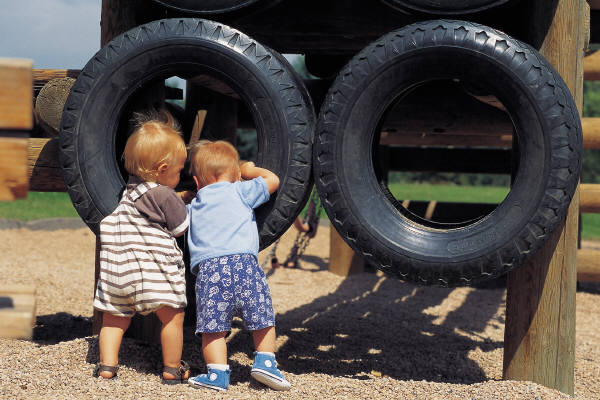
6. Examples in Stories: Harry the Dirty Dog (storybook) and Finding Nemo (movie) provide great examples of what characters did when they got lost or were away from home or feeling unsure. It will provide a springboard for conversation and learning.
7. The Right Help: It can only take a minute for a child to get lost, either in a familiar place or somewhere new, and they need to know what to do. Point out who they might approach in a particular setting if they feel lost or unsafe - stay in an area where there are lots of people around, call out to me by my first name (eg, Susan, not Mum), ask a Mum with a child, a person wearing a uniform or someone who works there for help. Also, encourage your children to get to know trusted adults in your community. Remember the old saying about "it takes a village..."
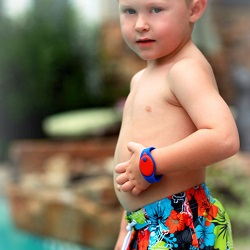
8. Tech Help: modern technology is allowing us to let our kids have more freedom, whilst still keeping a safe eye on them, at any age. These modern gadgets are not a replacement for age-appropriate supervision, but can give parents peace of mind, and give kids the freedom to begin making independent safety and life decisions.
As kids grow, they’ll want to explore, push boundaries, and make their own rules. Whether your child is on a family outing, at an amusement park, or on a school trip, tracking devices for kids give you one less thing to worry about. And whether your child is starting kindergarten or is in middle school, wearable GPS technology help you keep track of your child’s day without being too intrusive. Check out the choices at Safe Wise.
Extra Tip: Want a healthy outdoor, confidence building activity for your family? Our friends at Will and Fox have a great blog on 8 Reasons to Grow a Garden with your Kids. They are the home of amazing swim headbands and swim nappies too. Check them out here.
Whatever you do, don't let your fear of strangers and accidents hamper your child's exploration of life and the world around them. Focus on age-appropriate independence from an early age, and you will help to raise capable, adventurous and active citizens.
Happy exploring!!







